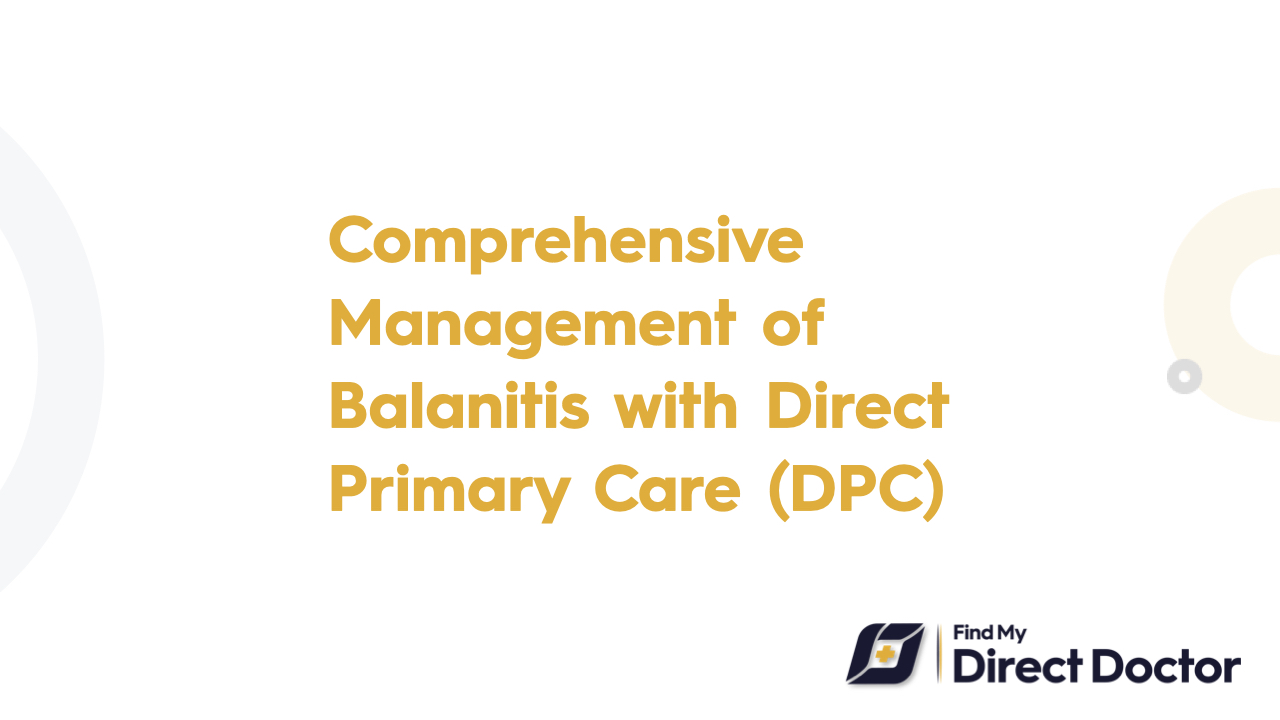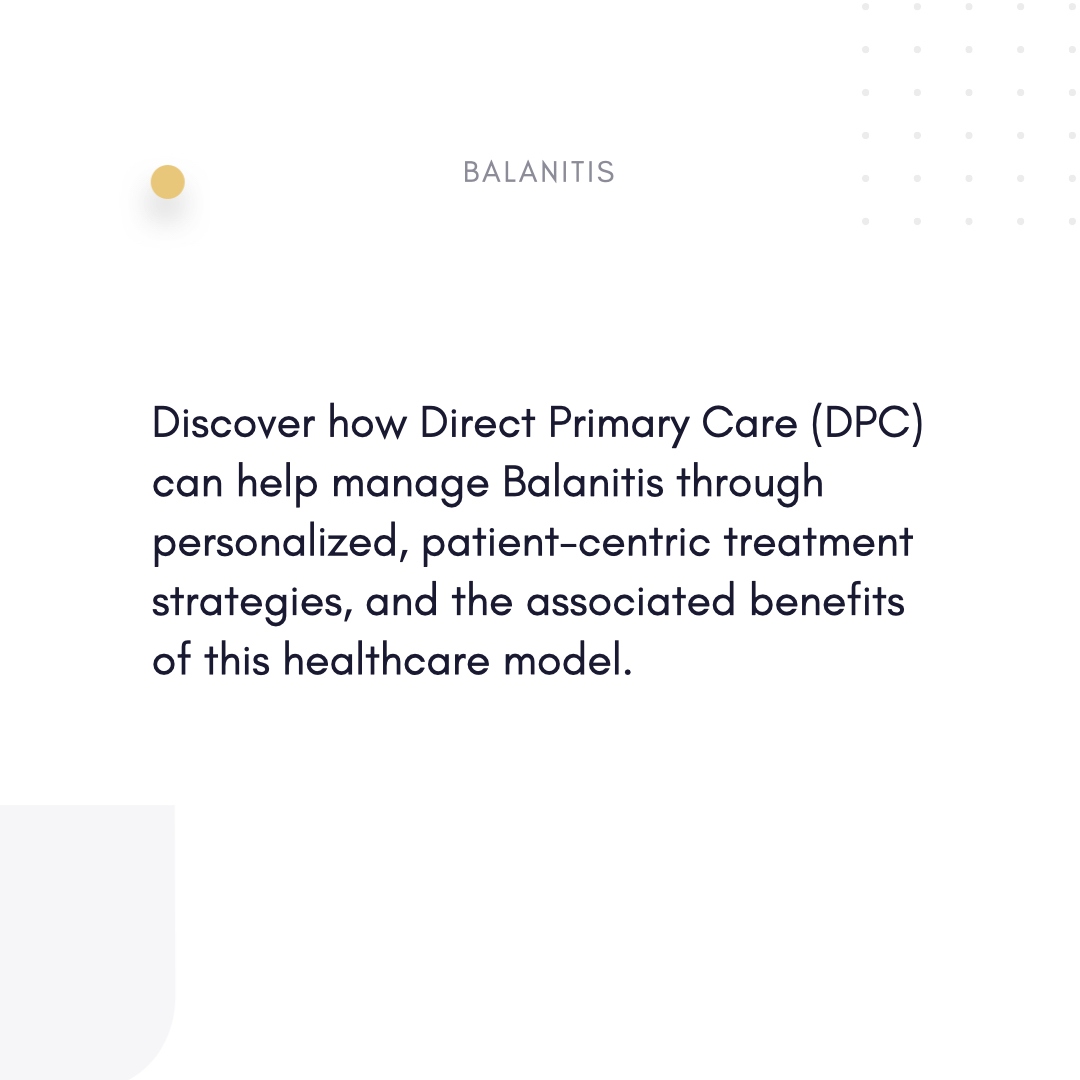



Balanitis—an inflammation of the glans penis, often extending to the foreskin (balanoposthitis)—causes redness, itching, swelling, and discomfort. While typically linked to infections, irritants, or underlying conditions like diabetes, recurrent cases demand personalized, proactive care. Direct Primary Care (DPC) offers a discreet, patient-centered model that prioritizes rapid diagnosis, tailored treatment, and prevention—all while reducing costs and delays. Here’s how DPC transforms balanitis management.

1. Immediate Access to Care
Same-Day Appointments: Address acute flare-ups quickly to alleviate discomfort and prevent complications (e.g., phimosis, scarring).
Discreet Consultations: Discuss sensitive symptoms openly in a judgment-free environment, with extended time to review medical history and lifestyle factors.
2. Precise Identification of Causes
In-Office Testing: Swab tests to detect infections (Candida, STIs) or irritants, with results expedited through direct lab partnerships.
Underlying Condition Screening: Check for diabetes, autoimmune disorders, or dermatological issues (e.g., psoriasis) contributing to inflammation.
3. Evidence-Based Interventions
Topical Therapies: Prescribe antifungal/antibacterial creams or steroid ointments tailored to the root cause.
Oral Medications: Initiate oral antifungals or antibiotics promptly for severe cases, bypassing insurance delays.
Hygiene Optimization: Recommend hypoallergenic cleansers and drying techniques to minimize irritation.
1. Holistic, Root-Cause Focus
Lifestyle Adjustments: Address triggers like poorly controlled diabetes, obesity, or exposure to harsh soaps, detergents, or lubricants.
Chronic Condition Collaboration: Partner with patients to manage diabetes or immune disorders, reducing vulnerability to recurrent infections.
2. Prevention and Education
Personalized Hygiene Plans: Demonstrate gentle cleaning routines and moisture control to prevent bacterial/fungal growth.
Partner Health Management: Offer testing/treatment for partners if infections (e.g., candidiasis, STIs) are identified.
3. Long-Term Follow-Up
Monitor patients with recurring balanitis for early signs of flare-ups and adjust prevention strategies proactively.
Unlike traditional care, DPC’s structure eliminates barriers to effective management:
Rapid Symptom Relief: Avoid ER or urgent care visits for acute flare-ups through direct access to your physician.
Cost Transparency: Membership fees often cover in-office tests, consultations, and discounted medications, avoiding surprise bills.
Continuity of Care: Build trust with a physician who understands your history, ensuring consistent follow-up for chronic cases.
Supported by organizations like the American College of Physicians (ACP), DPC’s direct patient-physician relationship enhances balanitis care by:
Reducing Treatment Delays: Immediate interventions prevent complications and curb recurrence.
Tailoring Prevention Strategies: Identify and eliminate personal irritants (e.g., soaps, lotions) through detailed history-taking.
Empowering Patients: Education on self-care and hygiene fosters long-term genital health.
Balanitis can disrupt daily life and impact self-confidence, but DPC’s proactive, patient-driven model addresses both immediate symptoms and underlying triggers. With same-day appointments, discreet care, and a focus on prevention, DPC physicians empower patients to achieve lasting relief. For those navigating recurrent cases or chronic conditions like diabetes, DPC’s continuity and affordability make it an ideal choice for comprehensive, compassionate care.
